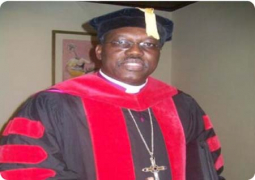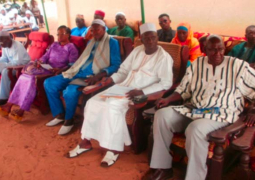
Election
related violence according to Ladan (2006) could be categorised into physical
and psychological. Physical election violence including physical attack, resulting
into assault, battery, grievous bodily harm or death, disruption and other
campaign, use of abusive language and other forms of violence inflicted on
individuals and groups.
Psychological
election violence include indiscriminate pasting of campaign posters, chanting
slogans (particularly the use of local poets and singers to attack and abuse
opponents), intimidation of public servants and businessmen for opposing the
status quo or the incumbent administration, use of the media (especially state
owned) to inflict psychological violence on the opposition and the denial of
access to such media by the opposition parties, reckless driving by those in a
procession to campaign rallies, which intimidate other road users and the use
of traditional ruler to intimidate the masses into electing particular
preferred candidates.
Democratization
has soared on the continent of Africa. Democracy has been embraced by all and
sundry. Democracy has given the power to rule to the people. A fundamental bed
rock of democracy is the election of political leaders through the electoral
box. (Henry Quaii, 2015)
Electoral
process gives the citizenry the sole right to elect their preferred political
leaders. As if this is not enough, electoral process in Africa have most often
been characterized by violence at various stages, from pre-election, during
elections and post elections. This electoral process which give rights to the
people to govern themselves is been challenged by the threats to security,
peace and development.
Electoral
violence in an African election can be seen manifested in various forms as
physical assaults, arson (the illegal use of fire to destroy a house, building
or property), snatching of ballot boxes and murder.
Can
Africa boast of a stable democracy for ones? One might be quick to ask; what
are the factors that might instigate all these electoral violence?
Again,
it could be captured across the streets of Africa that electoral violence is
been instigated as a result of the culture of impunity. The ineffectiveness and
malfunctioning of the security forces also give people the impetus to stage
electoral violence. The ineffectiveness especially on the part of the police
service is a major factor which encourages electoral violence. Pre-electoral
violence is often associated with killings but the police service always fails
to get to the root of those killings. This failure seems to be creating a
culture of impunity and motivation for recurrence of crimes and violence in our
society.
Electoral
violence is not been met with strong criminal codes in Africa. Weak penalties
or punishment for violators of electoral process also give room for more crimes
to be committed. Penalties or punishment are intended to achieve correction,
retribution and deterrence. Most countries in Africa lack legislation against
perpetrators of certain electoral offences. This poses African election to all
forms of crimes and violence.
Weak
governance and corruption can also instigate electoral violence. Corruption can
set the stage for structural violence. Weak governance and corruption make
people feel desperate enough to seek any means of revenge against political
authority including violence. Small arms proliferation in African countries is
on the increase. Possession of arms leads to the perpetuation of violent
conflict and the creation of new cycles of violence and crime.
Leadership
must come and go the Africa is a continent that should prepares succession
through the preparation of second and third layer leadership. I agreed with the
position of mystic philosopher of the Zhou dynasty, Lao Tzu, when he said, “To
lead the people, you have to walk behind them”.
The
real trick to good governance is to place the needs of the masses above
everything else; to lead not just with words but with action. Actions define
priorities. It’s the only way politicians can successfully bring us the long
sought dividend of democracy.
Hence
to resolve political violence, accountability, social justice, transparency,
rule of law, gender equality and due process must guide governance and
leadership in Africa. Electoral reforms must include other things as mass
education. There must be some level of education for the citizenry to know who
is a registered and considered as an eligible voter under the laws of the land.
I
dreamt of Africa that would one day have one currency one President and one
government which will preside over this continent. Because in any way we are
one, this borders of Africa were imposed on us by the colonizers, we need
leaders who are going to lead us to that drain where there would be one Africa.
BY:
SAIDINA ALIEU JARJOU: The Ghetto Spokesperson



